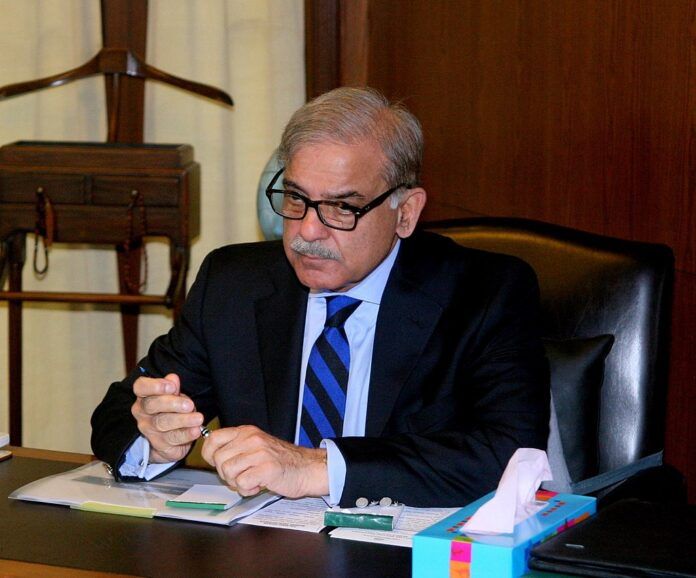PML-N and PPP forge an agreement to ensure local elections, equitable fund distribution, and merit-based recruitment
In a crucial political manoeuvre, the Shehbaz Sharif-led government has agreed to all the demands of its primary coalition partner, the Pakistan Peoples’ Party (PPP), to secure their support for the passage of Budget 2024-25. This agreement signifies a pivotal step towards political stability and the seamless approval of the budget in parliament.
Reliable sources reveal that the Pakistan Muslim League-Nawaz (PML-N) has accepted several key demands from the PPP. These demands include granting the PPP increased control over district administration, appointing law officers recommended by the PPP, ensuring PPP representation on various boards and authorities, scheduling local body elections promptly, and distributing development funds equitably among lawmakers from both parties.
Embed from Getty ImagesDuring the intense negotiations, the PML-N assured the PPP that there would be no anti-PPP actions in Punjab and emphasized a commitment to avoiding political retaliation against coalition partners. The agreement also guarantees merit-based recruitment in Punjab, with certain district-level appointments being made on the PPP’s recommendations.
To ensure the effective implementation of these agreements, monitoring committees composed of members from both PML-N and PPP have been established. These committees will convene every fifteen days to oversee progress and address any emerging issues.
Nadeem Afzal Chan, a prominent PPP leader and member of the negotiation committee, informed the media about the successful outcome of the negotiations. He underscored the importance of good governance in Punjab and assured that no political party would face victimization under the new arrangement.
“We have achieved a significant milestone with the PML-N, who have agreed to several of our demands,” Chan stated. “The agreement includes holding local elections in Punjab within a year and ensuring regular consultations and meetings to monitor the implementation of the agreement.”
This political accord between the PML-N and PPP marks a crucial step towards fostering collaboration and ensuring the equitable distribution of resources, ultimately aiming to strengthen governance and stability in Punjab and across Pakistan.
Analysis:
Political:
This agreement represents a strategic alliance between the PML-N and PPP, showcasing the intricate dynamics of coalition politics in Pakistan. By conceding to the PPP’s demands, the Shehbaz Sharif-led government ensures the passage of the budget, thereby averting a potential political crisis. This move also reinforces the PPP’s influence within the coalition, granting them significant leverage in administrative and developmental matters. The monitoring committees symbolize a commitment to transparency and accountability, setting a precedent for future political collaborations.
Social:
The agreement has significant social implications, particularly regarding the prompt scheduling of local body elections. These elections are crucial for grassroots democracy, allowing citizens to participate directly in the governance process. The assurance of merit-based recruitment and equitable distribution of development funds addresses long-standing issues of favouritism and resource allocation, promoting social justice and fairness. This move is likely to resonate positively with the public, fostering a sense of inclusivity and empowerment.
Racial:
While the agreement does not explicitly address racial issues, the equitable distribution of development funds and merit-based recruitment can indirectly impact racial dynamics. By ensuring fair representation and resource allocation, the government can mitigate racial disparities and promote harmony among diverse communities. This approach can help address grievances and foster a more inclusive and equitable society, reducing tensions and promoting unity.
Gender:
The agreement’s emphasis on merit-based recruitment and equitable representation can positively influence gender dynamics in Punjab. By promoting transparency and fairness in appointments, the government can ensure that qualified women have equal opportunities for leadership roles and administrative positions. Additionally, the local body elections provide a platform for women to participate in governance, furthering gender equality and empowerment. This commitment to gender inclusivity is a progressive step towards a more balanced and representative political landscape.
Economical:
Economically, the agreement aims to ensure the equitable distribution of development funds, which can stimulate balanced regional growth and development. By addressing resource allocation disparities, the government can foster economic stability and prosperity across Punjab. The commitment to holding local elections and merit-based recruitment also promotes efficient governance, enhancing public trust and investor confidence. This political stability can attract investment, boost economic activities, and create job opportunities, contributing to overall economic growth and development
